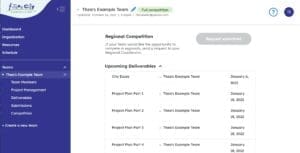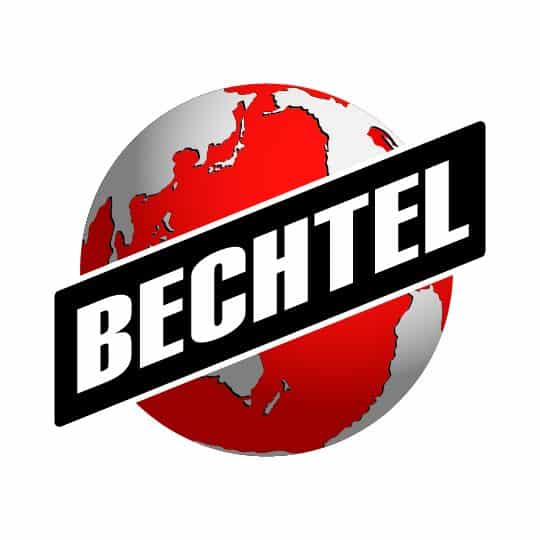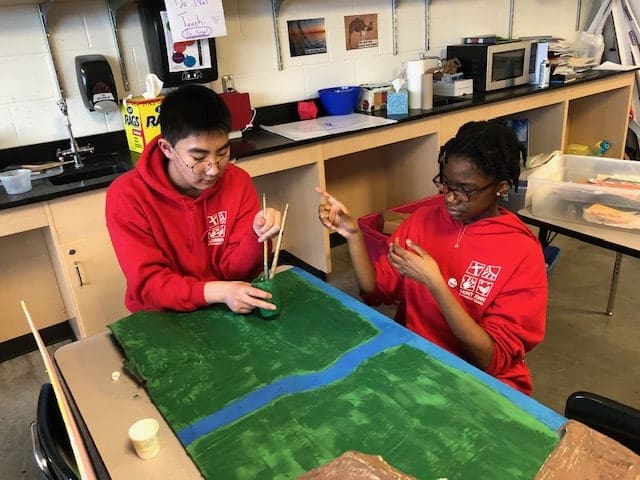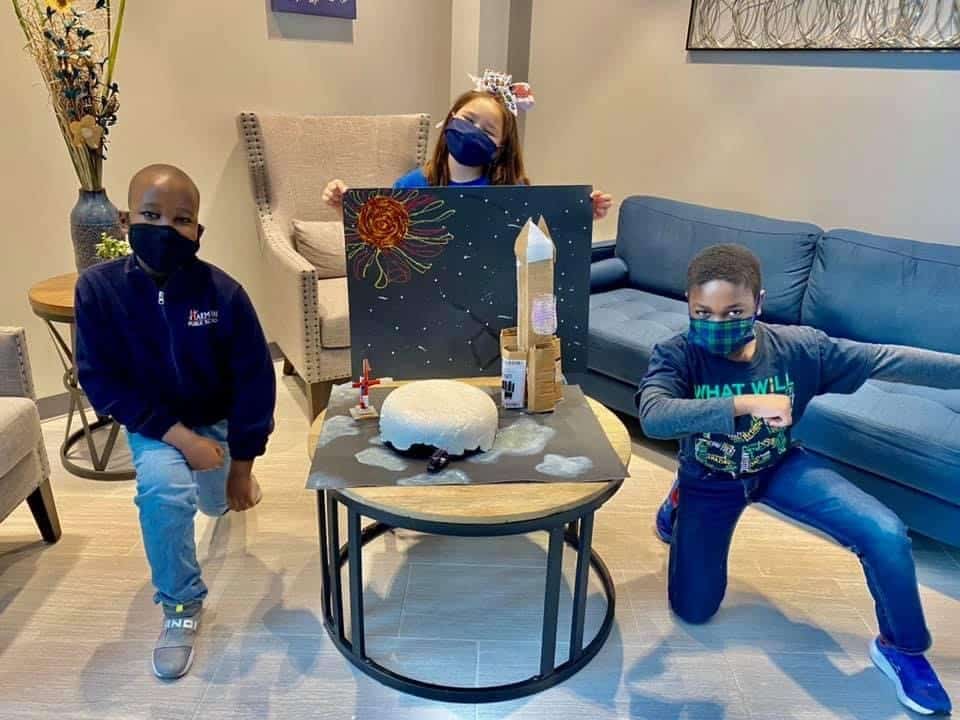Future City starts with a question
—how can we make the world a better place?
To answer it, middle school students imagine, research, design, and build cities of the future that showcase their solution to a citywide sustainability issue.
This flexible, cross-curricular educational program gives students an opportunity to do the things that engineers do—identify problems; brainstorm ideas; design solutions; test, retest, and build; and share their results. Future City is an engaging way to build students’ 21st-century STEAM skills.
What is Future City?
Throughout the fall, participants work in teams of at least three students, an educator, and volunteer mentor to bring their vision of their future city to life. They will imagine what it’s like like to walk down the main street of a city 100 years in the future. What do they see, hear, smell, and feel? From this starting point, they will design a futuristic city with innovative solutions to some of today’s most pressing sustainability issues.
This year’s challenge asks students to address climate change in their city. As the middle school students create their cities, they will:
- Use the engineering design process and project management steps to take on a large-scale project;
- Apply their math and science knowledge to a real-world problem
- Strengthen their teamwork and problem-solving skills;
- And more!
Questions? Ask Jake – a Future City alumnus and the current program manager!
Email: Info@FutureCity.org
We love our sponsors
How Does Future City Work?
Future City is open to kids in grades 6, 7, and 8 who are from the same school, a home school environment, or are members of a nationally, regionally, or state-recognized youth-focused organization, such as the Boy and Girl Scouts, Boys and Girls Clubs, or 4-H. Not sure if your organization qualifies? Contact info@FutureCity.org
Competition Deliverables
The Future City Competition consists of five deliverables. These document the team’s progress through the engineering design process and showcase the team’s city of the future. Teams are judged and scored on all deliverables (due dates vary by region and are available after you register on your Future City Educator Dashboard).
- City Essay (54 points) Teams describe the unique attributes of their city and their solution to the annual challenge (1,500 word max.)
- City Model (55 points) Teams build a physical model of their city (in one piece or multiple segments) using recycled materials and includes one moving part.
- City Presentation (50 points) Teams have seven minutes to present their city’s futuristic innovations and bring it life.
- City Q&A (49 points) Teams answer questions for a panel of STEM professionals.
- Project Plan (10 points) Teams develop and use a project plan to help them stay organized and focused.
*The points per deliverable may change based on that year’s rubric.
Do I have to compete to do Future City?
No! Future City is first and foremost a STEM education program. Educators can choose to do what works for their goals and schedule. Review the registration options tab for more details.
Team Formats
There are multiple ways to organize your team(s):
- Official Team: Includes three student representatives, one educator, and one mentor. Most regions welcome teams larger than three students: however, only the three official student representatives present the team and answer questions at competition.
- Multiple Teams: An organization can form multiple teams under one educator account. Check with your Regional Coordinator to see how many teams may compete in the Regional Competition.
- Other Team Formats: Some classrooms or clubs choose to work in one large team and break the work into smaller groups.
Three Registration Options
- Resources only*: Get free access to Future City’s full suite of resources.
- Partial Competition: Great for first time teams, see what Future City is all about while only completing one or two deliverables. Eligible for some special awards in certain regions.
- Full Competition: Complete all five deliverables and fully compete in regionals. Eligible for special awards and prizes. Regional winners compete in the Finals in Washington, DC. Transportation, hotel and some meals are covered for the five official team members.
Cost
$25.00 per organization whether you register 1 or 100 teams. *The Resources only option is free. *Check with your Regional Coordinator to see how many teams you can bring to competition.
Educator Dashboard
After you register, you will have access to all of Future City’s resources via your Educator Dashboard. Here you will be able to:
- Access over 30 STEM Activities

- Download Program Handbook
- Get Step-By-Step Leading Your Team Guide
- Manage Your Teams
- Track Competition Due Dates
- And More!
*All 2022-2023 resources will be available in early August.
Mentors & Judges
- Judges: Are a vital part of Future City. You’ll score team deliverables (virtually or in person), using our scoring rubrics and training, provide feedback, and help determine the overall winners. Your interactions with our young participants leaves a lasting impact.
- Team Mentor: Working with the team educator (virtually and/or in person) you’ll help focus the students on the big picture and brainstorming possible solutions. Later, you might help with the city model, teaching the students about scale, and helping them fine-tune their presentation. Making yourself available to review things like the city essay and ideas of futuristic components is helpful too. Just remember you are an advisor and the students do all the actual work.
Volunteer registration opens in August 2022.








